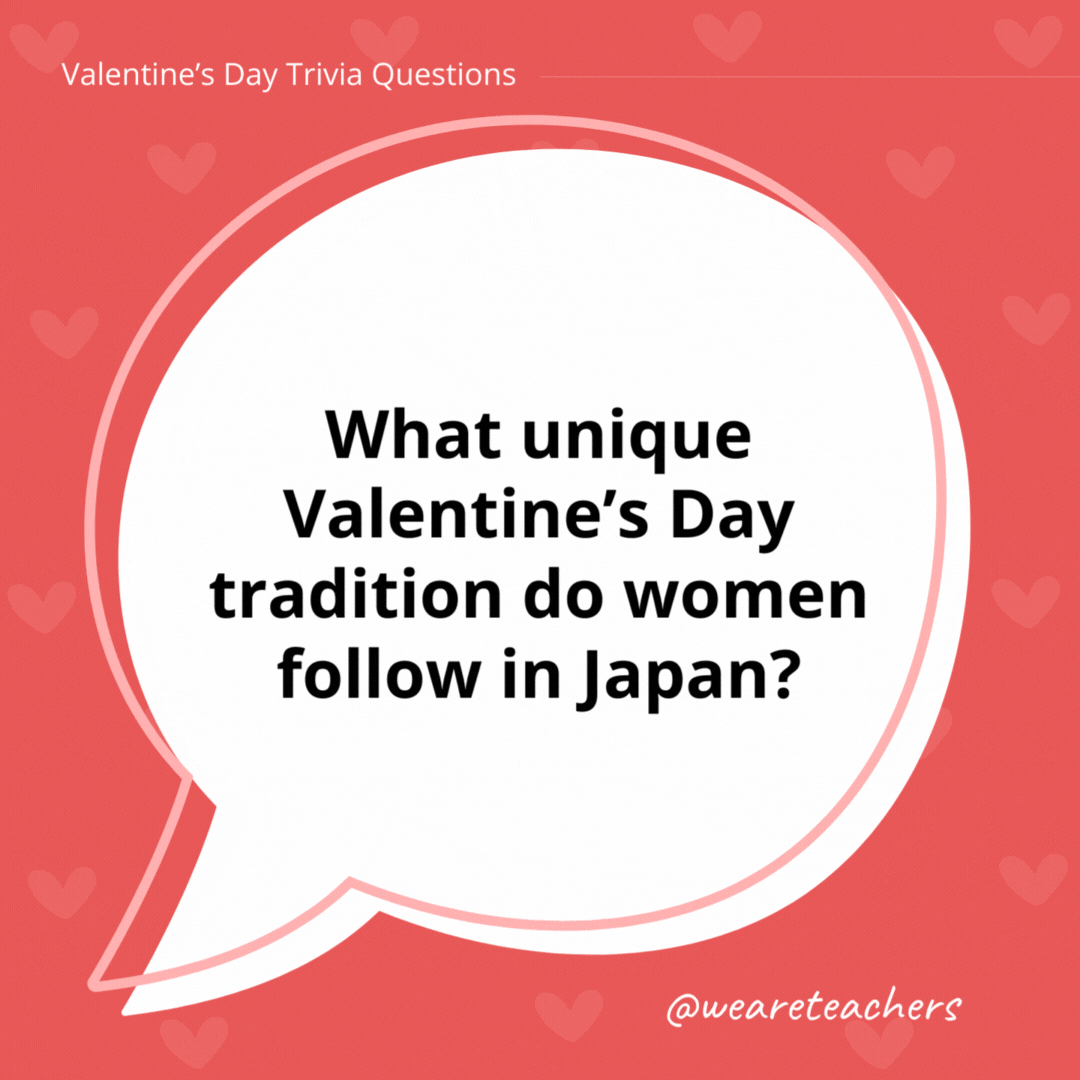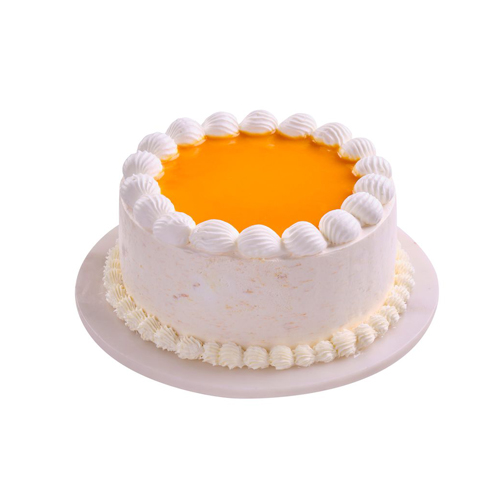Gallery
Photos from events, contest for the best costume, videos from master classes.
 |  |
 |  |
 |  |
 |  |
 |  |
 |  |
A survey of 200 women aged 20 to 50 asked who they give Valentine’s chocolates to. The results showed that 117 women give chocolates to their husbands, followed by parents, friends, or themselves. Only 30 women mentioned giving chocolates to colleagues, showing that giri-choco (obligation chocolates) is becoming less common. Japan & South Korea: a two-part chocolate exchange. In Japan, Valentine’s Day flips the script – it’s women who give chocolates to men. But there’s more to it: Giri choco = ‘obligatory chocolates’ for friends, co-workers, or bosses. Honmei choco = romantic chocolates for someone special. The way Valentine’s Day is celebrated in Japan — initially beginning as a day for women to offer boxes of chocolates to men they have feelings for — is evolving with the rising prices of Unlike in many other countries where couples exchange gifts, Japanese tradition dictates that women take the lead on February 14 by giving chocolate to men. But not all chocolates are created equal! "Giri-choco" (obligation chocolate) is given to male friends, colleagues, or bosses as a polite gesture, while "Honmei-choco" (true love chocolate However, around the world, different countries have their own ways of celebrating with unique traditions that may surprise you. In the Unites States, both partners traditionally give gifts, however, in South Korea, it’s customary for the woman to give men chocolate on Valentine’s Day as a sign of affection. In Japan, Valentine’s Day is all about women purchasing the right amount and quality of chocolate for their husbands, male family members, boyfriends, and even male coworkers. Similarly, women give chocolate to men on February 14th in other Asian countries like Taiwan and South Korea. Why do women give men chocolate on Valentine’s Day? Back in the 1950s when the company Morinaga was trying to market Valentine’s Day in Japan, they created an extensive campaign about the chocolate-giving traditions in America and hoped that Japanese people who wanted to “Westernize” would catch on. Taking place exactly one month after Valentine’s Day, it is when men offer gifts to women. A few years after Valentine’s Day came to be established, the confectionery industry had the idea to Women look at the Valentine's Day chocolates and other items on offer at a counter in the Isetan Department Store in Tokyo, Japan, February 14, 2023. The tradition of giving chocolates on the Day of Hearts started in the 1860s in Great Britain, with the sweets packaged in heart-shaped boxes with a Cupid on it. Chocolate is made from the seeds of the cacao tree, which has the scientific name Theobroma cacao. The first is a Greek word that means “Food of the Gods.” For South Koreans, Valentine’s Day happens in three parts: February 14, March 14 and April 14. On February 14, women traditionally give men gifts of chocolate to show their affection. One month Valentine’s Day is known as the day when one expresses their love to that one special person. In Western countries it is common for both men and women to participate in a gift exchange. Often, the approaching date of February 14th causes men across the world to scramble, trying to pick out a gift, or plan the perfect date. However, in Japan, Valentine’s Day plays out a bit differently Although there are several theories about how Japan’s chocolate-giving tradition on Valentine’s Day began, one of the oldest dates goes back to 1932, to a Western-style confectionery store in In South Korea, only women give chocolate to men on this day. Contrary to what is done in the U.S., women give men gifts on Valentine’s Day. When is Valentine’s Day in Korea? Just like in other countries that celebrate Valentine’s Day, South Koreans celebrate Valentine’s Day on February 14. Is Valentine’s Day a Holiday in Korea? Tomo choco – This is chocolate women buy for their female friends on Valentine’s Day. It’s often very decorative or expensive, and many women like to get together to eat their tomo chocolate and spend time together. Gyaku choco – It’s not traditional for men to give women chocolate on Valentine’s Day, but if they do, it’s called Men are known to give chocolate gifts to their friends, and women commonly give gifts to their friends. Everyone loves receiving chocolate. Keep On Giving. Exactly one month after February 14th, men are expected to celebrate White Day. On this day, men gift their lovies something of equivalent value to what they received on Valentine’s Day. So I've been wondering about the gift-giving tradition on Valentine's; I understand that typically, it is women who are giving men chocolates on this day, and it would be vice versa on White Day. But I'm curious to know if it's allowed for men to gift chocolate on Valentine's Day to other men. WHERE IS VALENTINE'S DAY CELEBRATED BY HAVING WOMEN GIVE MEN CHOCOLATE?#14_feb_21_trivia_answers" #NEW VIDEO# Did you know that Valentine’s Day is celebrated differently in Japan? It is the Japanese ladies who give chocolates on Valentine’s Day, and they receive presents in return later on White Day. Keep reading to find out the main kinds of chocolates that are given out on Valentine’s Day, such as giri and honmei chocolates, and their meanings. We also answer the question: Do Japanese people That’s right — in Japan, Valentine’s Day is all about women giving chocolate to men. It’s a strong tradition that dates back to the 1950s. That doesn’t mean men can sit back and enjoy the sentiment, though.
Articles and news, personal stories, interviews with experts.
Photos from events, contest for the best costume, videos from master classes.
 |  |
 |  |
 |  |
 |  |
 |  |
 |  |